CHOMAN, Iraq — Snow-covered peaks loom over the pickup truck winding its way up a dirt road in the foothills of the Zagros Mountains. It’s late April, but temperatures remain frigid here on the Iran/Iraq border.After a steep 30-minute drive from the city of Choman in the semiautonomous region of Iraqi Kurdistan, we stop at a makeshift border station located five or six miles west of the actual border. It’s controlled by the Democratic Party of Iranian Kurdistan, a militant political organization banned in Iran and exiled to Iraq whose members act as an unofficial border patrol in the area.Two Kurds climb out of the truck. They’re armed with Kalashnikov rifles, but they’re not here to fight. Instead, they’re here to sell their cargo — dozens of boxes filled with alcohol.The shipment of mostly whiskey, vodka, and beer originated in Turkey, then passed through the cities of Erbil and Sulaymaniyah in Iraqi Kurdistan. The alcohol will be smuggled over the harsh mountain terrain and into Iran, where it’s a crime for Muslims to drink or even possess alcohol. Getting caught with it can result in lashings. Getting caught three times can result in a death sentence.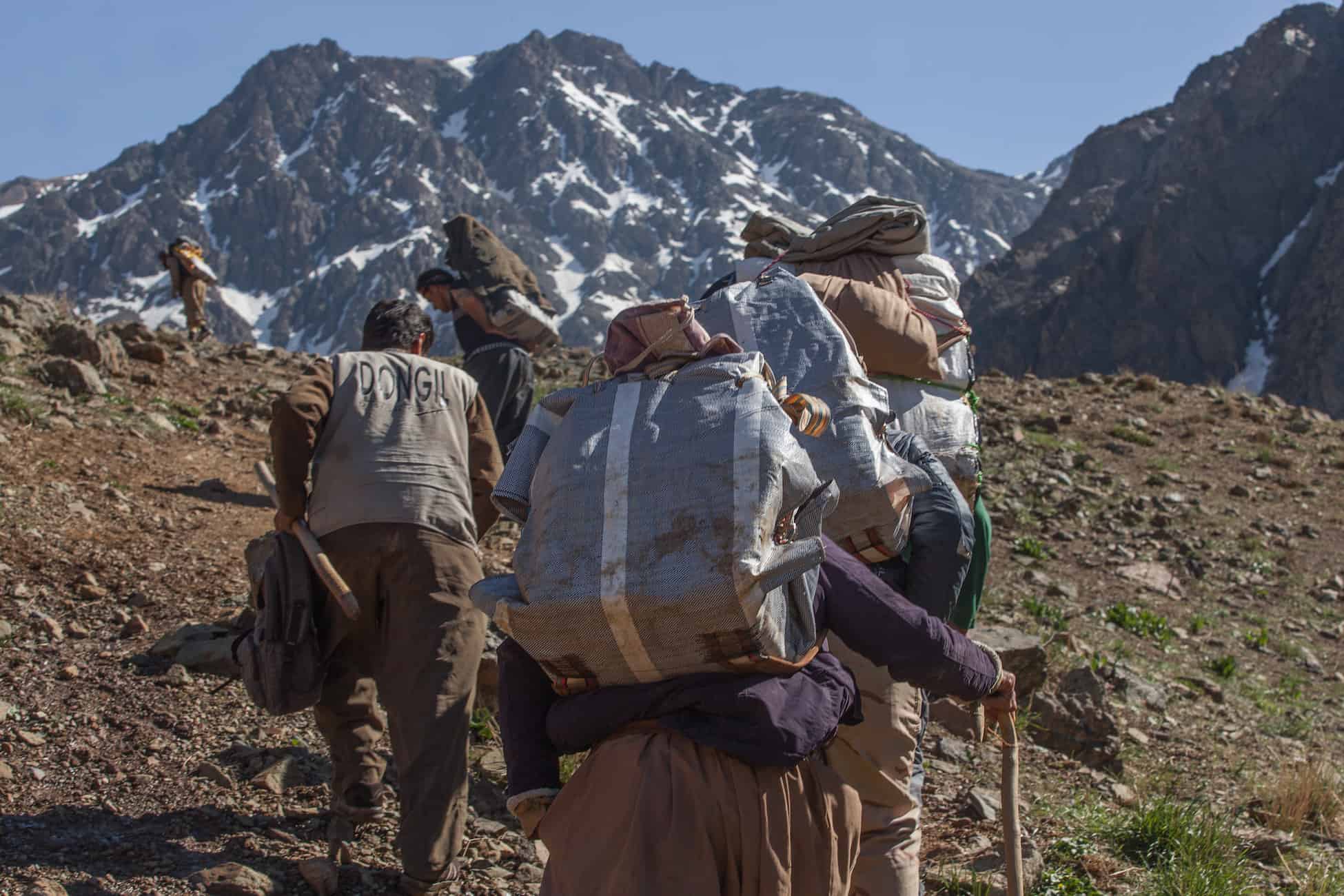 “If the weather is good, between 200 and 250 smugglers come every day,” says Fariat, one of the two Kurdish militiamen.It’s not very warm today, however, and soon about 20 men appear from the direction of Iran, slowly descending mountains that are still littered with land mines from the 1980s Iran-Iraq War. They are on foot, many of them in shoes that are tattered and torn. Some wear face masks to protect themselves from the cold.One of the men is Ahmed, a 45-year-old smuggler who began his journey of 8 or 9 miles from the Iranian city of Piranshahr at 3 a.m. that morning. He and his Kurdish comrades are here to buy the alcohol and return it across the border.“Now I am going to carry 40 kilograms of bottles of alcohol on my back,” he says. It took him six hours to walk here unencumbered, but it will take him three times as long to walk back over the mountains thanks to his nearly 90-pound burden.He smiles.“It’s going to take me 18 hours to cross this paradise.”* * *Despite the possibility of harsh punishments, it isn’t all that difficult to procure alcohol in Iran.In 2011, an estimated $730 million worth of alcohol — somewhere between 60 million and 80 million liters — was smuggled into the country and mostly sold in larger cities by people known as sagis. They aren’t hard to find, and their clientele includes a range of economic classes; a bottle of smuggled booze in Iran typically costs anywhere from $20 to $100.In addition, alcohol is legally produced — in extremely limited quantities — and consumed inside the country by members of religious minorities.
“If the weather is good, between 200 and 250 smugglers come every day,” says Fariat, one of the two Kurdish militiamen.It’s not very warm today, however, and soon about 20 men appear from the direction of Iran, slowly descending mountains that are still littered with land mines from the 1980s Iran-Iraq War. They are on foot, many of them in shoes that are tattered and torn. Some wear face masks to protect themselves from the cold.One of the men is Ahmed, a 45-year-old smuggler who began his journey of 8 or 9 miles from the Iranian city of Piranshahr at 3 a.m. that morning. He and his Kurdish comrades are here to buy the alcohol and return it across the border.“Now I am going to carry 40 kilograms of bottles of alcohol on my back,” he says. It took him six hours to walk here unencumbered, but it will take him three times as long to walk back over the mountains thanks to his nearly 90-pound burden.He smiles.“It’s going to take me 18 hours to cross this paradise.”* * *Despite the possibility of harsh punishments, it isn’t all that difficult to procure alcohol in Iran.In 2011, an estimated $730 million worth of alcohol — somewhere between 60 million and 80 million liters — was smuggled into the country and mostly sold in larger cities by people known as sagis. They aren’t hard to find, and their clientele includes a range of economic classes; a bottle of smuggled booze in Iran typically costs anywhere from $20 to $100.In addition, alcohol is legally produced — in extremely limited quantities — and consumed inside the country by members of religious minorities.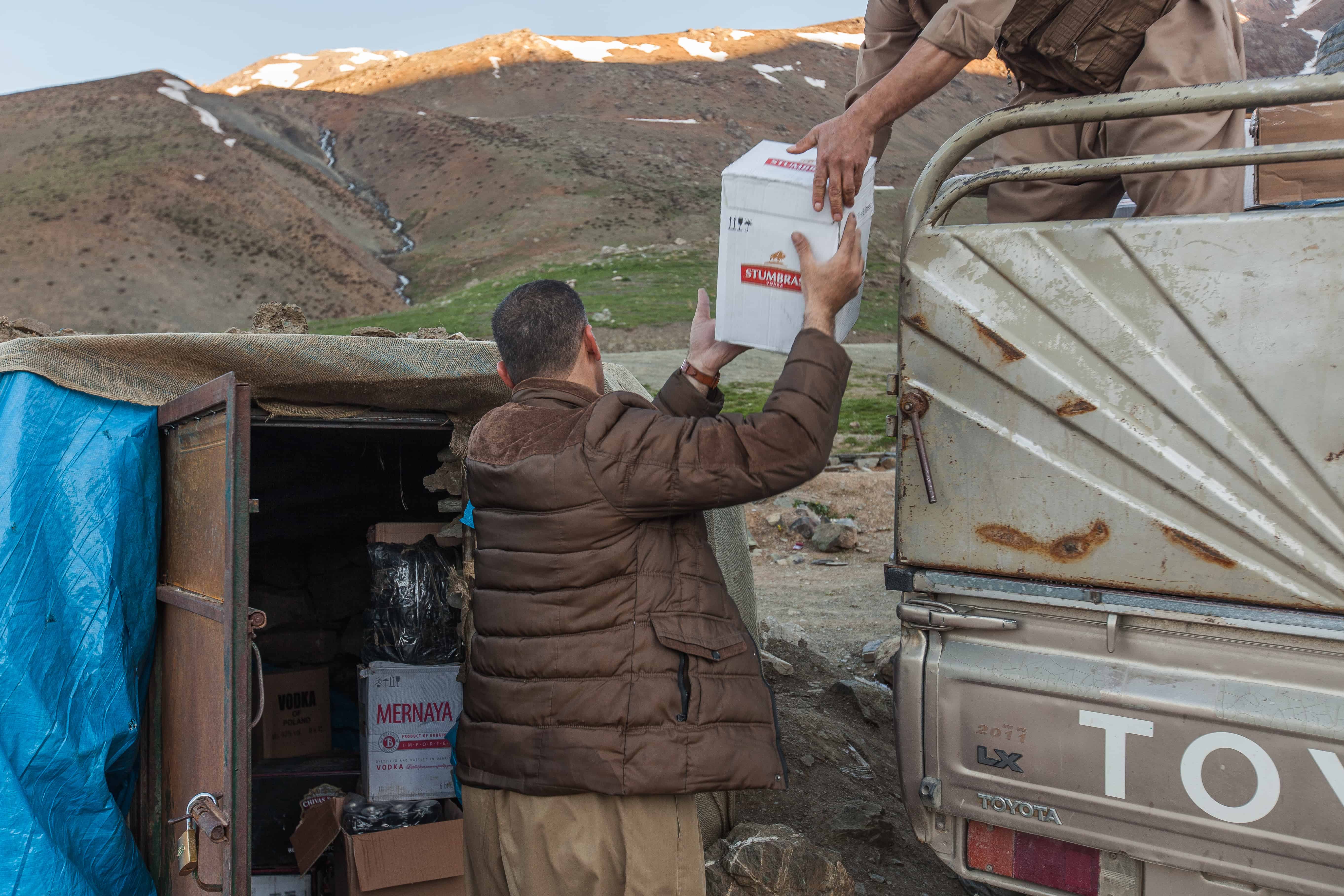 As a result of the relatively easy-to-obtain illegal alcohol, the then-head of the country’s national police force said in 2012 that there were more than 1 million regular drinkers in Iran; an estimated 200,000 of them suffered from alcoholism.About 80 percent of all the alcohol smuggled into Iran enters the country from Iraqi Kurdistan. The Ministry of Interior for the Kurdistan Regional Government, which governs the region, declined comment.* * *Ahmed has been smuggling alcohol for a decade. He completes his route about 10 times a month when weather permits, but a smuggler’s definition of “weather-permitting” is expansive.“The cold is our worst enemy,” he says during the ascent toward the border. “Every year, we lose companions who die from the cold.”
As a result of the relatively easy-to-obtain illegal alcohol, the then-head of the country’s national police force said in 2012 that there were more than 1 million regular drinkers in Iran; an estimated 200,000 of them suffered from alcoholism.About 80 percent of all the alcohol smuggled into Iran enters the country from Iraqi Kurdistan. The Ministry of Interior for the Kurdistan Regional Government, which governs the region, declined comment.* * *Ahmed has been smuggling alcohol for a decade. He completes his route about 10 times a month when weather permits, but a smuggler’s definition of “weather-permitting” is expansive.“The cold is our worst enemy,” he says during the ascent toward the border. “Every year, we lose companions who die from the cold.”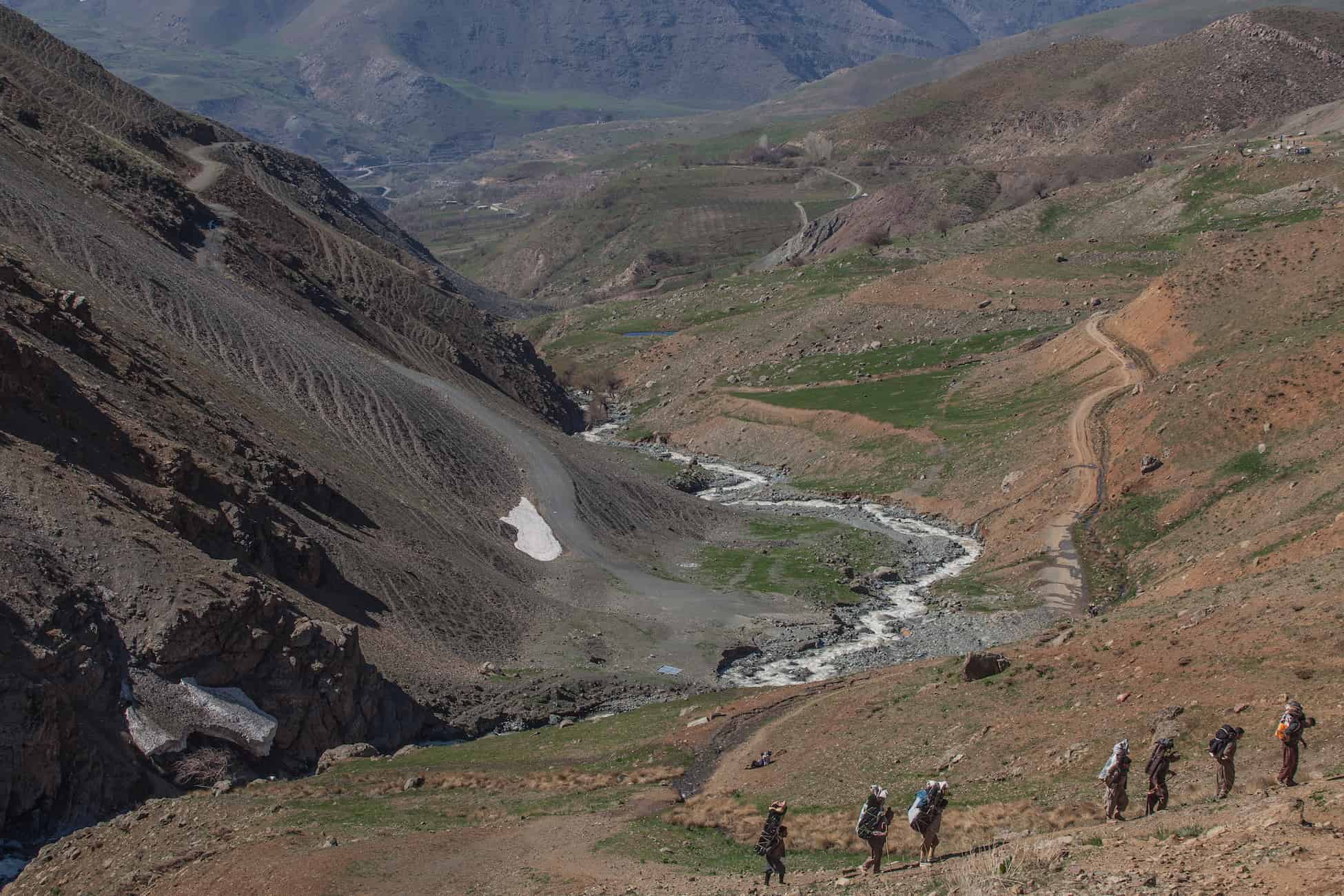 They also die in skirmishes with Iranian guards, who patrol the mountainous border. A few weeks earlier, Ahmed says, border guards fired on him and some of his fellow smugglers; two men died. If any of them had been caught with the alcohol, they would have likely faced years in prison.Ahmed earns about $500 a month in the summer, when he’s able to complete the journey most often. (The average monthly income in Iran is about $350.) The Democratic Party of Iranian Kurdistan militiamen who supply the liquor tax the smugglers between $30 and $50 per trip depending on the value of the cargo. Some smugglers prefer to haul cheaper liquor, but not because of the taxes.
They also die in skirmishes with Iranian guards, who patrol the mountainous border. A few weeks earlier, Ahmed says, border guards fired on him and some of his fellow smugglers; two men died. If any of them had been caught with the alcohol, they would have likely faced years in prison.Ahmed earns about $500 a month in the summer, when he’s able to complete the journey most often. (The average monthly income in Iran is about $350.) The Democratic Party of Iranian Kurdistan militiamen who supply the liquor tax the smugglers between $30 and $50 per trip depending on the value of the cargo. Some smugglers prefer to haul cheaper liquor, but not because of the taxes.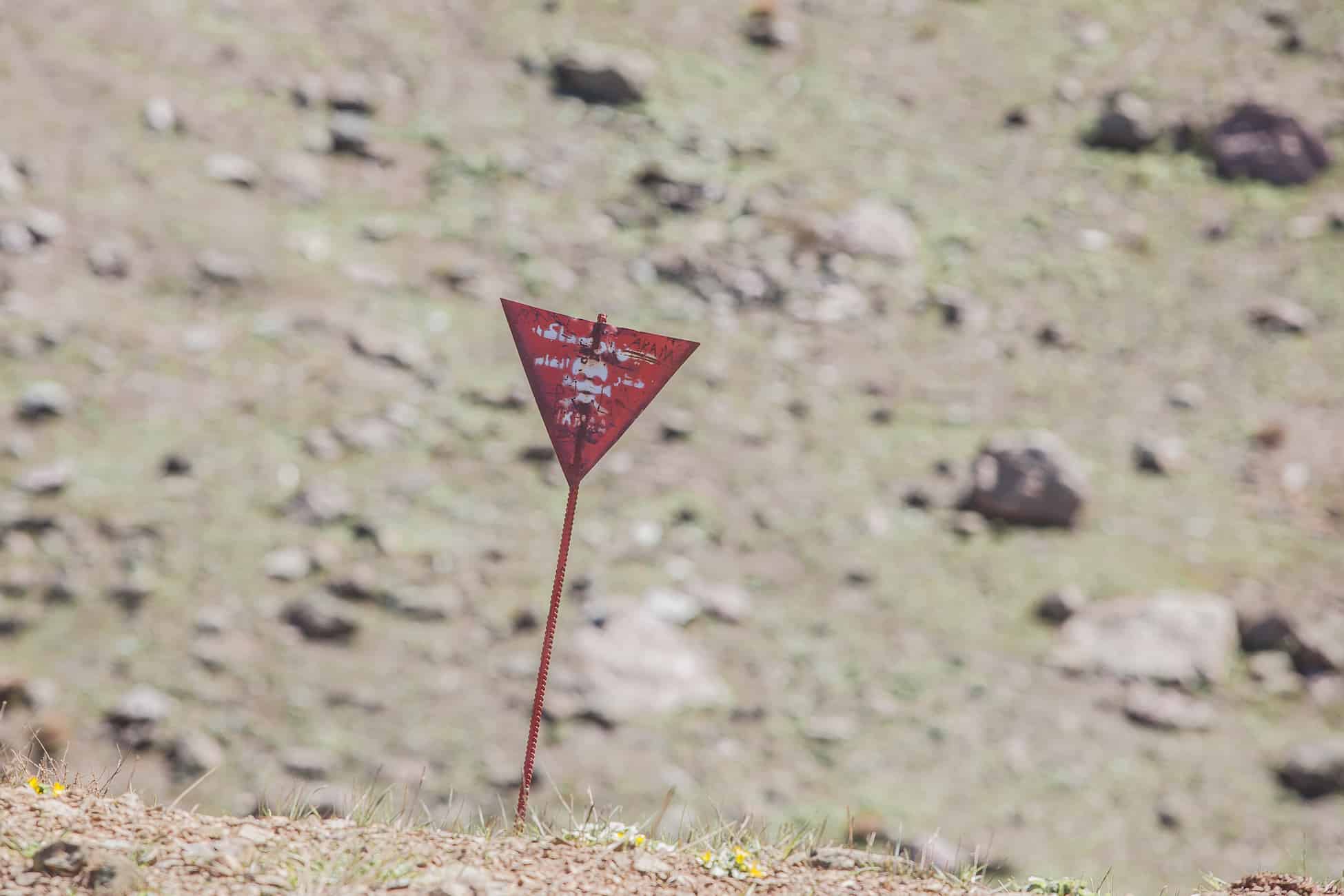 “If we buy luxury bottles, we can earn a lot,” says Peshawa, a smuggler traveling with Ahmed. “But it is also a danger because if we abandon our cargo when we’re fleeing the shootings of the border guards, then we can lose a lot of money.”Mohammad, 39, takes a break during the rocky ascent. “I spent three years in the prison of Urmia in Iran,” he says. “Why? Because during a skirmish in the mountains, I disarmed and then hit an Iranian border guard.”The guard, he says, was in a coma for two months.“I came to Iraq to join the Democratic Party of Iranian Kurdistan,” he continues. “But as I have a cousin who is a member of [Iran’s] Islamic Revolutionary Guard Corps, they did not hire me.”Though smugglers say they’re all but unable to bribe border guards, they do work with informants who identity the whereabouts of patrols. But there are also informants in the smugglers’ ranks, says Fariat. Those informants tell Iranian intelligence if they spot anything more serious than alcohol being transported into the country.
“If we buy luxury bottles, we can earn a lot,” says Peshawa, a smuggler traveling with Ahmed. “But it is also a danger because if we abandon our cargo when we’re fleeing the shootings of the border guards, then we can lose a lot of money.”Mohammad, 39, takes a break during the rocky ascent. “I spent three years in the prison of Urmia in Iran,” he says. “Why? Because during a skirmish in the mountains, I disarmed and then hit an Iranian border guard.”The guard, he says, was in a coma for two months.“I came to Iraq to join the Democratic Party of Iranian Kurdistan,” he continues. “But as I have a cousin who is a member of [Iran’s] Islamic Revolutionary Guard Corps, they did not hire me.”Though smugglers say they’re all but unable to bribe border guards, they do work with informants who identity the whereabouts of patrols. But there are also informants in the smugglers’ ranks, says Fariat. Those informants tell Iranian intelligence if they spot anything more serious than alcohol being transported into the country.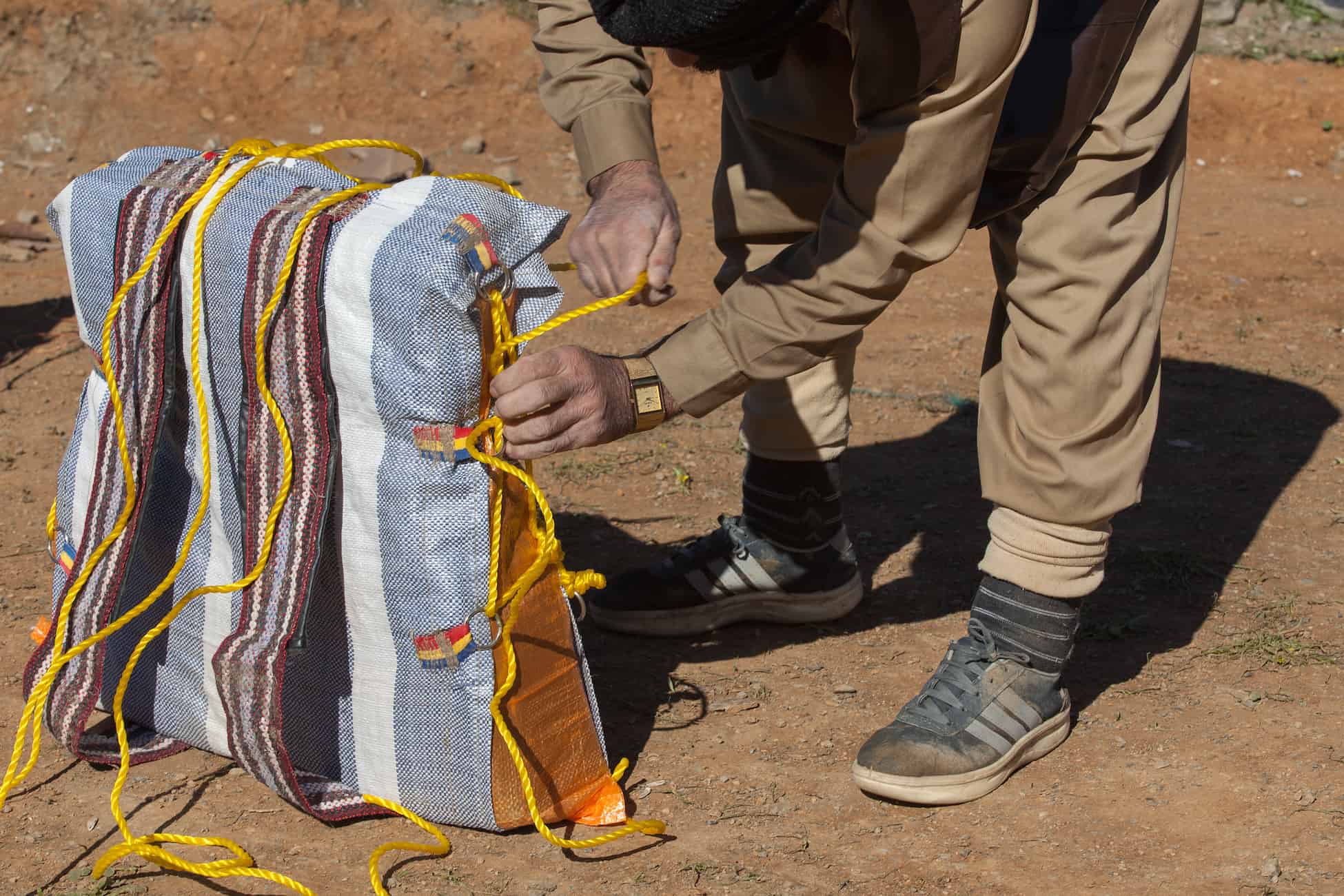 “Iranian secret services try to infiltrate this [smuggling] traffic rather than fight it,” says Bernard Hourcade, a researcher focused on Iran at France’s National Center for Scientific Research. “The traffic of alcohol is less important; drugs, dissidents, or terrorism are the real targets of the government. Alcohol smugglers are more useful as informants.”A few hundred meters from the border, VICE News parts ways with Ahmed, Peshawa, Mohammad, and the other smugglers. The following morning, they will meet Kurdish merchants in Iran and sell them the alcohol, and the merchants will in turn smuggle it into Iran’s major cities, where they will sell it to sagis, who will sell it to drinkers.“You call the sagi and tell him what you want,” says 23-year-old Ramin, a Tehran resident who drinks regularly. “You take your car, wait for him at a traffic light, and the transaction is done.”The smugglers, meanwhile, will begin another trip across the border.
“Iranian secret services try to infiltrate this [smuggling] traffic rather than fight it,” says Bernard Hourcade, a researcher focused on Iran at France’s National Center for Scientific Research. “The traffic of alcohol is less important; drugs, dissidents, or terrorism are the real targets of the government. Alcohol smugglers are more useful as informants.”A few hundred meters from the border, VICE News parts ways with Ahmed, Peshawa, Mohammad, and the other smugglers. The following morning, they will meet Kurdish merchants in Iran and sell them the alcohol, and the merchants will in turn smuggle it into Iran’s major cities, where they will sell it to sagis, who will sell it to drinkers.“You call the sagi and tell him what you want,” says 23-year-old Ramin, a Tehran resident who drinks regularly. “You take your car, wait for him at a traffic light, and the transaction is done.”The smugglers, meanwhile, will begin another trip across the border.
Advertisement

Advertisement

Advertisement


Advertisement

